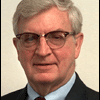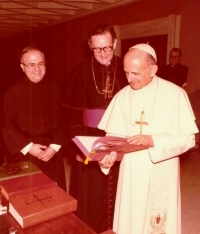Hurley and Liturgy
One of the most obvious reforms of Vatican II, in which Archbishop Hurley played such a key role, was the reform of the liturgy and the document Sacrosanctum Concilium reform of the liturgy and the document (1962) which urged ‘full and active participation’ by the laity. This led to the need for the texts of the Mass and other services in languages other than Latin (‘vernacular’) and it was recognised that there should be one common English translation that could be used across all countries rather than each Bishops’ Conference creating its own.
Thus ICEL (the International Commission on English in the Liturgy) was founded in part with Hurley’s help in 1963. He gave ICEL nearly 40 years of service, 16 of them as Chair, and oversaw the introduction of widely accepted texts for all parts of the Catholic liturgy.
However, the technique used of ‘dynamic translation’ – to capture the meaning of the original but in natural modern English – came under attack from the Vatican's Congregation for Sacred Worship at the turn of the Millennium under the Papacy of Benedict XVI. It was felt that the English version should stick more closely to the structure of the Latin and use Latinate terms (e.g. ‘consubstantial’ rather than ‘one in being’) especially since translations into many smaller languages were based on the English text not the Latin. Eventually ICEL was restructured and its mandate and the whole process of translation substantially altered and much of the work of Hurley on translations was undone.
 Fr Gil Ostdiek Fr Gil Ostdiek
member of ICEL
1986-1999 |  Archbishop Hurley
presenting ICEL
translations to Pope
Paul VI
|